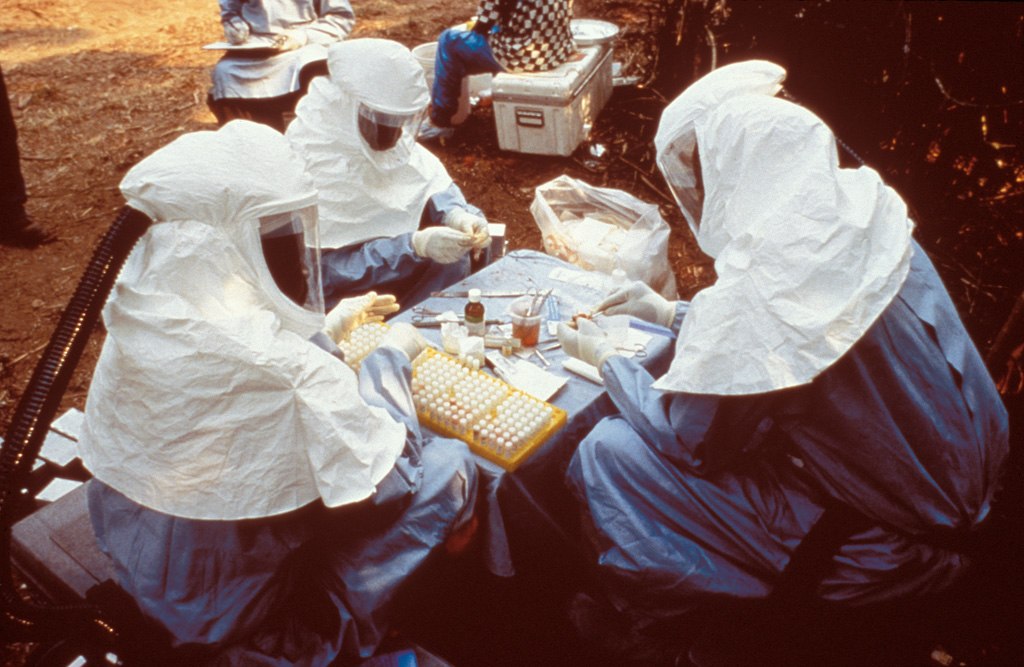
A new study, led by Emma Glennon, highlights the need for better diagnosis of Ebola and early intervention.
If an outbreak is detected early enough, we can prevent it spreading with targeted, low-tech interventions, such as isolating infected people and their contacts.
Emma Glennon
Half of Ebola outbreaks have gone undetected since the virus was discovered in 1976, scientists at the University of Cambridge estimate.
The new findings come amid rising concern about Ebola in the Democratic Republic of Congo, and highlight the need for improved detection and rapid response to avoid future epidemics.
The research, led by Emma Glennon from Cambridge’s Department of Veterinary Medicine, is the first to estimate the number of undetected Ebola outbreaks. Although these tend to involve clusters of fewer than five people, they could represent well over 100 patient cases in total. The study, published today in PLOS Neglected Tropical Diseases, found that the chance of detecting an isolated case of Ebola was less than 10 per cent.
Glennon [2016], a Gates Cambridge Scholar, says: “Most times that Ebola has jumped from wildlife to people, this spillover event hasn’t been detected. Often these initial cases don’t infect anyone else, but being able to find and control them locally is crucial because you never know which of these events will grow into full outbreaks.”
"We rarely find Ebola outbreaks while they are still easy to manage. The unfolding epidemic in the DRC demonstrates how difficult it is to stop the disease once it has got out of control, even with international intervention. But if an outbreak is detected early enough, we can prevent it spreading with targeted, low-tech interventions, such as isolating infected people and their contacts.”
The scientists used three independent datasets from the 2013–16 Ebola epidemic in West Africa to simulate thousands of outbreaks. From these simulations, they worked out how often they would expect a spillover event to fizzle out early versus how often they would expect to see it progress into a true outbreak. This allowed the team to draw comparisons with reported outbreak sizes and estimate detection rates of clusters of different sizes.
Glennon says: “Most doctors and public health workers have never seen a single Ebola case and severe fever can easily be misdiagnosed as the symptom of malaria, typhoid or yellow fever. To limit outbreaks at their source, we need to invest much more to increase local capacity to diagnose and contain Ebola and these more common fevers. We must make sure every local clinic has basic public health and infection control resources. International outbreak responses are important but they are often slow, complicated and expensive."
Picture credit: 1995 photograph of scientist with personal protective equipment (PPE) testing samples from animals collected in Zaire for the Ebola virus credited to CDC/ Ethleen Lloyd.

Emma Glennon
- Alumni
- United States
- 2016 PhD Veterinary Medicine
- Churchill College












